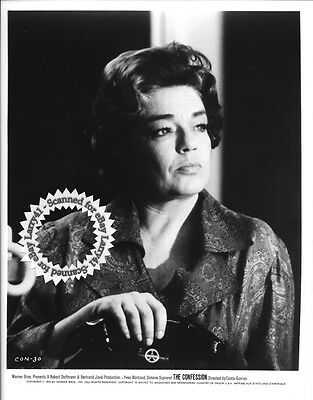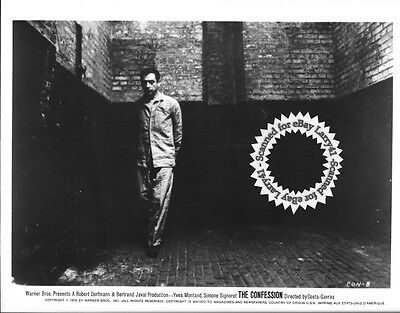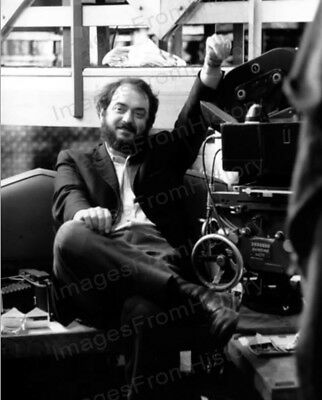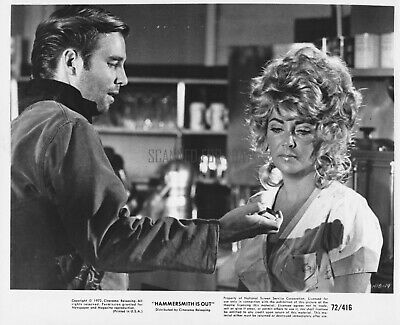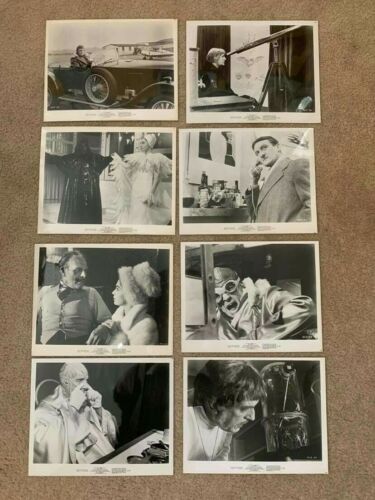-40%
Lot of 9, Costa-Gavras, Yves Montand Simone Signoret stills THE CONFESSION (1970
$ 4.74
- Description
- Size Guide
Description
(They ALL look MUCH better than these pictures above. The circle with the words, “scanned for eBay, Larry41” does not appear on the actual photograph. I just placed them on this listing to protect this high quality image from being bootlegged.)Lot of 9, Costa-Gavras, Yves Montand, Simone Signoret stills THE CONFESSION (1975) aka L'aveu MINT vintage original studio release
– GET SIGNED!
This lot of approximately 8” x 10” photos will sell as a group. The first picture is just one of the group, please open and look at each still in this lot to measure the high value of all of them together. The circle with the words, “scanned for eBay, Larry41” does not appear on the actual photographs. I just placed them on this listing to protect these high quality images from being bootlegged. They would look great framed on display in your home theater or to add to your portfolio or scrapbook! Some dealers by my lots to break up and sell separately at classic film conventions at much higher prices than my low minimum. A worthy investment for gift giving too!
PLEASE BE PATIENT WHILE ALL PICTURES LOAD
After checking out this item please look at my other unique silent motion picture memorabilia and Hollywood film collectibles! SAVE BY SHIPPING SEVERAL WINS TOGETHER!
See a gallery of pictures of my other auctions
HERE!
These photographs are original photo chemical created pictures (vintage, from original Hollywood studio release) and not a copies or reproductions.
DESCRIPTION:
This Costa-Gavras thriller stars Yves Montand as an East European government functionary, inexplicably imprisoned by his Communist superiors. He is not told why he has been arrested, nor has his wife (Simone Signoret) been informed of his fate. Undergoing psychological torture, Montand is grilled about his wartime activities. At the end of his rope, Montand agrees to sign several papers that are thrust before him. He eventually discovers that he's to be a defendant in a "show trial" conducted by his government. He never knows the whys and wherefores of the whole affair -- nor does the audience. The Confession was based on the true story of loyal Communist Arthur London's unjustified purge trial of 1951. Despite the film's confusion, Costa-Gavras' Kafkaesque view of the world, in which the individual is overwhelmed by events that he can't possibly begin to understand, struck a responsive chord in the chaotic early '70s.
CONDITION:
These quality vintage and original release stills are in MINT condition (old yes, but NO signs of wear or damage). PERFECT TO BE AUTOGRAPHED OR SIGNED AT A PERSONAL APPEARANCE! I doubt there are better condition stills on this title anywhere! Finally, they are not digital or repros. (They came from the studio to the theater during the year of release and went into storage for many years!) They are worth each but since I have recently acquired two huge collections from life long movie buffs who collected for decades… I need to offer these choice items for sale on a first come, first service basis to the highest bidder.
SHIPPING:
Domestic shipping would be FIRST CLASS and well packed in plastic, with several layers of cardboard support/protection and delivery tracking. International shipping depends on the location, and the package would weigh close to a pound with even more extra ridge packing.
Ebay is changing their system. Items you put in your shopping cart WILL REMAIN FOR SALE on Ebay unless you pay for them. To receive an invoice with corrected (grouped together) shipping, simply click on the REQUEST TOTAL button in your shopping cart.
PAYMENTS:
Please pay PayPal! All of my items are unconditionally guaranteed. E-mail me with any questions you may have. This is Larry41, wishing you great movie memories and good luck…
BACKGROUND:
"Confession is the highest form of self-criticism." -Party official in "The Confession" Costa-Gavras' first film since "Z" is, once again, a study of the way lies can be made to seem good as truth. All it takes to work this miracle is sufficient power! If you control not only a man's life but also his mind, you can get him to believe anything. In "Z," the power was Fascist and of the right. In "The Confession," we're shown fascism of the left in the form of the Communist Party show trials in Czechoslovakia in 1952. The film is inspired almost entirely by fact, by the memoirs of Artur London, one of the 13 Czech Communist leaders who were indicted as traitors, Trotskyists, Titoists, Zionists or what have you, and one of the three who was not executed. It is not a thriller like "Z," and it couldn't be, because there is no justice to emerge at the end and no scoundrels to unmask. As nearly as seems possible, the totalitarian system itself kept the show trials running, and they persisted so well that the party officials who began them turned up as defendants, too. No, it's not a thriller but a penetration into the mind, and Yves Montand is able to express the state of his character's mind perfectly by showing him, after nearly 20 months of torture and cross-examination, watching his captor eat a sausage as if it were not lunch but the Holy Grail. The movie itself is a wearing experience, as it was meant to be. We begin to wonder toward the end how even the inquisitors could stand up to the inhuman grind of cross-examination. Costa-Gavras seems to be trying in his latest two films to take the facts themselves and mold them into a sort of fiction beyond truth. There is nothing he can tell us about the execution of 10 innocent Czech leaders that he hasn't shown us already with a shot of their ashes being dumped into a snow-covered road to help a car get traction. Images like this are beyond explaining. In the current New York Review of Books, Alfred Kazin considers Capote's "In Cold Blood" and Mailer's "Of a Fire on the Moon" in much the same way, as the reactions of story-tellers to stories that are too real to be reduced to fiction. The style of "The Confession" reminds us of "Z," particularly in the quick cutting and the sure-footed use of flashbacks. The, structure becomes complex but never confusing, and Costa-Gavras always seems to be urgently on the move, wanting to tell us more than can be told. His characters are always moving when a shot opens on them. His editor hurries ahead to the next image while the voice from the last finishes a sentence. The camera itself seems afraid that by staying too long on one image, it is missing others. And we feel ourselves buried in this mass of information, our rational minds somehow trying to make sense of a system where nothing is "true" but everything must be "correct." There is a controversy in European Communist circles over "The Confession," I'm told. It's been banned in a lot of countries, including Russia and Czechoslovakia, and it has been embraced by anti-Communist movements as an indictment of communism. But Costa-Gavras has made a point of insisting that the movie is anti-Stalinist, not anti-Communist. For that matter, we had some show trials trying to get themselves under way in this country in 1952. I suppose the conclusion you come to after seeing "The Confession" is that mankind has a terrifying ability to persecute and execute its members on the strength of an idea that may turn out, a few years later, to have been forgotten. Daniel Berrigan, S.J., sent an open letter to the Weathermen recently in which he said that no cause was worth the sacrifice of a single human life. That inspired a lot of head scratching in newspaper editorials, philosophy classrooms and elsewhere. But see "The Confession" and think about it.
